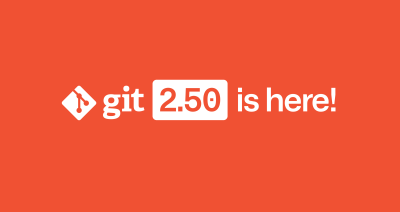Bringing greater financial sustainability to open source communities
We know that companies benefit from open source. That’s why we’re making it easier for companies to financially support projects.

| This is part of our Octoverse 2022 report, which explores the state of open source software, its impact on companies, and key trends shaping software development. |
Today, more than nine in 10 companies use open source software in at least some capacity.
This is an incredible validation of the power and success of open source. But it also underscores some concerns. Key among them: How do we ensure that open source is financially sustainable? More pointedly, how do we make sure the developers maintaining some of the most critical software being used by companies, governments, nonprofits, and countless organizations are able to keep doing their important work?
At GitHub, we’ve been at the intersection between open source communities and companies since our early days. And in the past 10 years, we have seen encouraging signs when it comes to sustainability in open source. Some companies have offered financial support to open source foundations. Others have sponsored conferences. And still other companies have developed OSPO (open source program office) departments to help navigate and engage open source communities.
But this financial support doesn’t always make its way down to the developers who are making the open source software companies use. The open source ecosystem is still trying to secure supply chains—and open source sustainability is far from being solved.
In 2019, we launched GitHub Sponsors to fill the gap in sustainability and offer users a direct way to financially support open source maintainers and projects. Through the direct sponsorship of maintainers, GitHub Sponsors hopes to enable fulfilling careers in open source that weren’t possible before.
We know that companies benefit the most financially from open source and that their sponsorships are the most impactful to maintainers and projects. To that end, we’re working to make it easier for companies to provide this support. Our Sponsors for Companies program, currently in Beta, makes it easier for companies to give back at scale. We’ve seen a lot of interest from companies to give directly to maintainers in addition to other support of the open source ecosystem. We’ve also learned that many get pushed internally by their developers about the need to support key open source projects they’re using—it’s encouraging to see this.
Soon, we’re planning to make GitHub Sponsors for Companies generally available. This isn’t a perfect fix to bringing greater sustainability to open source—but it’s a start. And from our continuing conversations, it’s something that companies and open source maintainers alike are excited about.
Crucial parts of the open source infrastructure are maintained by a few hardworking individuals that often do it for free.
Companies tell me they are excited to support the software they rely on. After all, what happens if a maintainer of an open source project that’s critical to them decides to stop working? But many companies are still learning how best to support these key dependencies—whether indirectly through foundations or conferences or directly by giving money to those projects.
In the coming months and years we’ll be learning from the open source community how to grow and evolve direct sponsorship. How might projects communicate their community and project health? Share their roadmap and priorities? How does a maintainer share their funding goals? On the flip side, how can funders know their contribution was impactful and how do projects maintain autonomy? We’re thrilled to grow GitHub Sponsors and create more tools for building careers in open source.
What to watch
More companies providing financial support to open source projects and maintainers. With a greater recognition of the value and impact of open source and the rise of more OSPOs, we expect to see direct funding of open source projects by companies as a key part of engaging in open source.
| You can find more expert predictions from our Octoverse 2022 report on the following topics: |
Tags:
Written by
Related posts

Git security vulnerabilities announced
Today, the Git project released new versions to address seven security vulnerabilities that affect all prior versions of Git.

Highlights from Git 2.50
The open source Git project just released Git 2.50. Here is GitHub’s look at some of the most interesting features and changes introduced since last time.

4 trends shaping open source funding—and what they mean for maintainers
Get insights on the latest trends from GitHub experts while catching up on these exciting new projects.